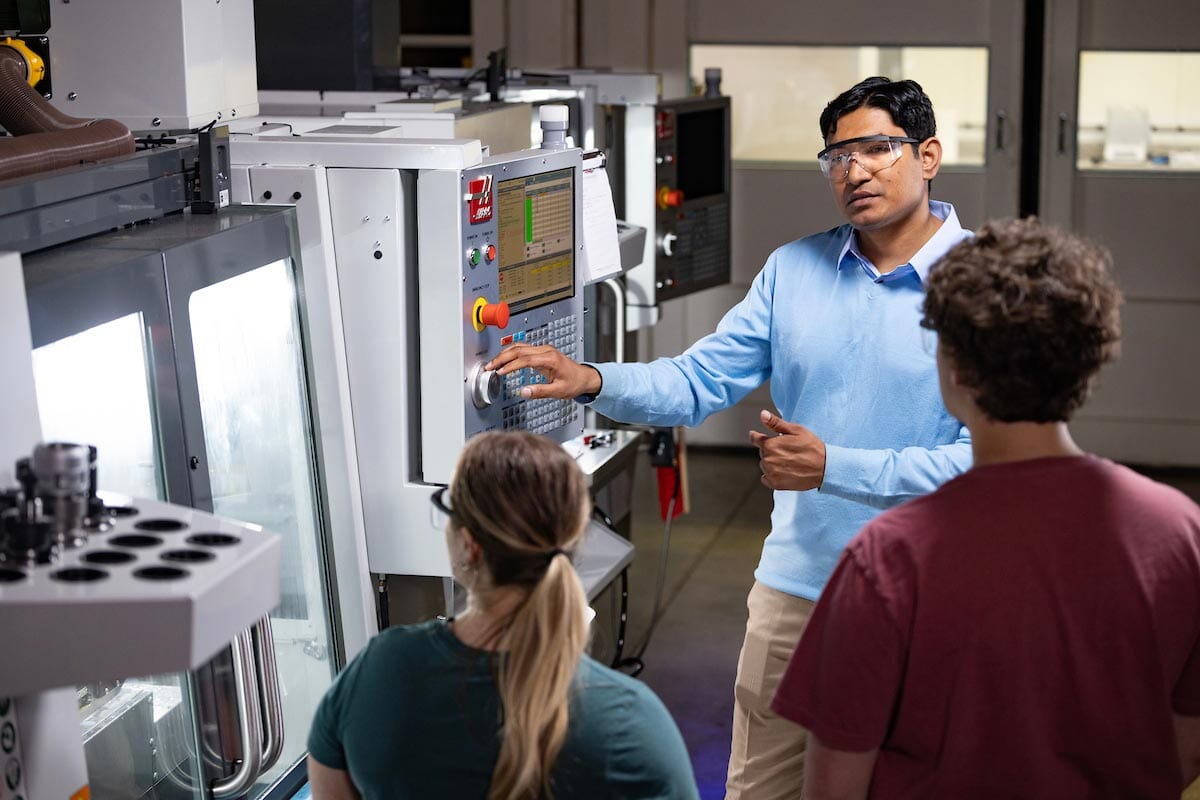
Investing in Ohio’s manufacturing workforce: BGSU microcredential, hands-on training supports industry professionals and K-14 educators
Estimated Reading Time:
The educational programming, funded through two separate federal grants, will be ongoing this summer
Located in one of the nation’s most industrialized states, Bowling Green State University is upskilling more than 120 industry professionals and educators this summer to support regional workforce needs in advanced manufacturing and robotics.
The educational programming was funded through two separate federal grants, with curriculum developed and led by world-class faculty members in the BGSU School of Engineering in collaboration with industry partners.
“BGSU is committed to broadening our educational outreach to support regional workforce needs and drive economic vitality,” said Dr. MD Sarder, director of the School of Engineering, who is leading the training programs. “This work is critical to our mission as a public university for the public good.”
This month, the third cohort of high school and community college educators who currently teach science, technology, engineering and mathematics, or STEM, subjects will conduct cutting-edge, hands-on research in advanced manufacturing and robotics alongside BGSU engineering faculty members. More than 28 educators have already completed the program.
The six-week program, funded by a grant from the National Science Foundation, will focus on emerging areas of advanced manufacturing, including sensors and actuators, advanced robot programming, CNC programming, CAD/CAM, 3D printing and e-factory, a virtual platform for simulation and offline programming of industrial robots.
The goal is for educators to introduce these concepts to their students to build awareness of the opportunities available in engineering while also changing the perception of what it means to work in manufacturing today.
The program could impact nearly 6,500 high school and community college students during its three-year duration.
Additionally, more than 120 industry professionals are enrolled this summer in online, in-person and hybrid microcredential training developed by BGSU with support from the U.S. Economic Development Administration. More than 30 industry professionals completed the training last year during the inaugural session, which will bring the total number of trained individuals to over 150 by fall.
“We believe that when industry and higher education come together, pathways are created that are both immediately relevant and strategically future-focused,” said Kerry Spitze, BGSU Office of Corporate Partnerships senior director. “Microcredentials like this reflect a shared commitment to agile learning, workforce mobility and long-term innovation.”
The program, Advancing Regional Talent in Smart Technology Enabled Manufacturing, includes 16 non-credit training modules that Sarder refers to as the smart manufacturing workforce training ecosystem.
Participants can follow tracks in either robotics and automation or smart manufacturing, with modules focused on industrial sensors and actuators, artificial intelligence and machine learning, additive manufacturing, quality control and lean practices.
The self-paced courses range from one to three weeks and are taught by BGSU engineering faculty. The experiential learning portion of the training is held at the eFactory inside the Stephen and Deborah Harris/RIXAN Robotics Laboratory on the BGSU campus.
BGSU was among 11 recipients nationwide and the only in Ohio to receive the grant from the EDA to develop the microcredential training program.
Related Stories
Media Contact | Michael Bratton | mbratto@bgsu.edu | 419-372-6349
Updated: 06/11/2025 08:35AM




